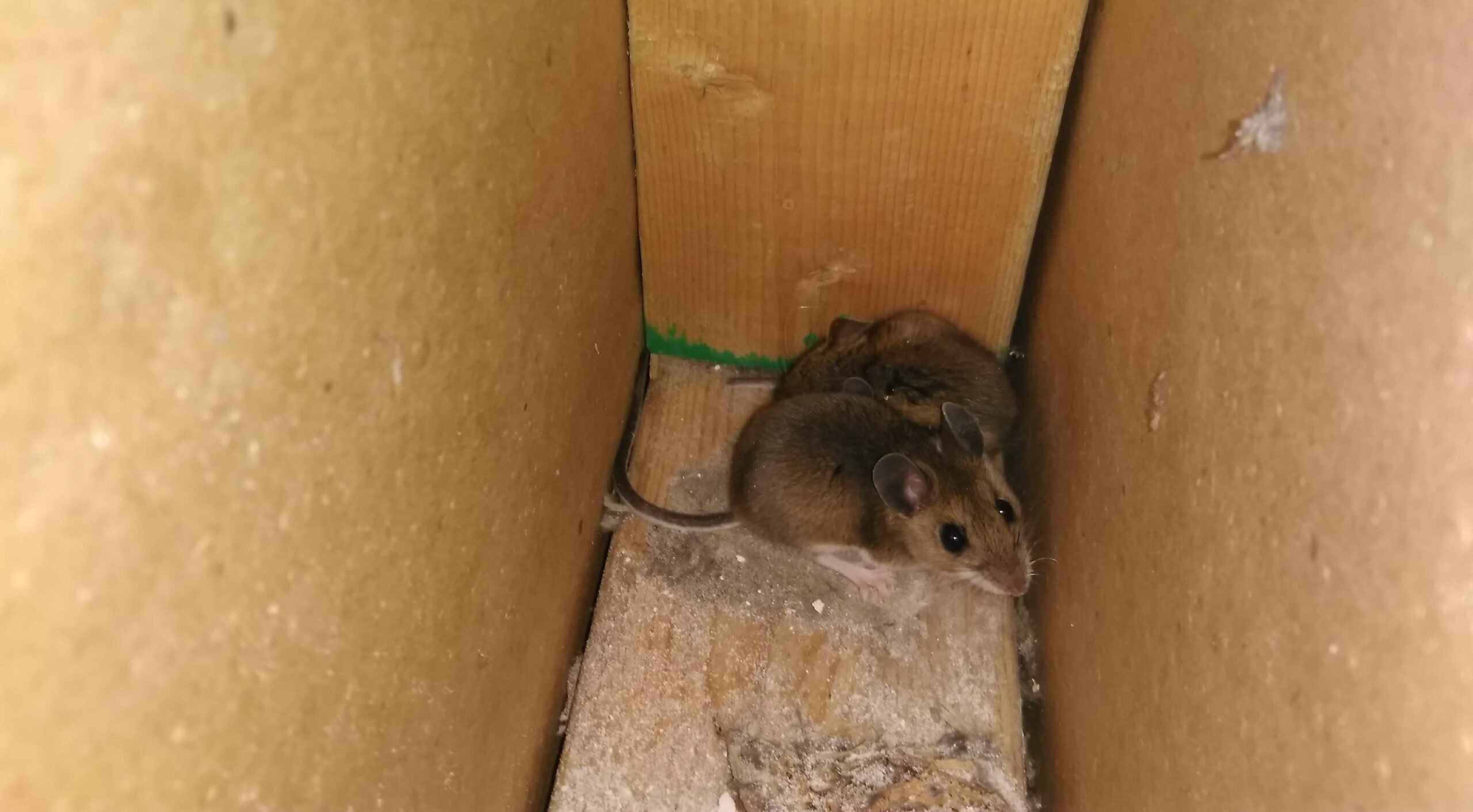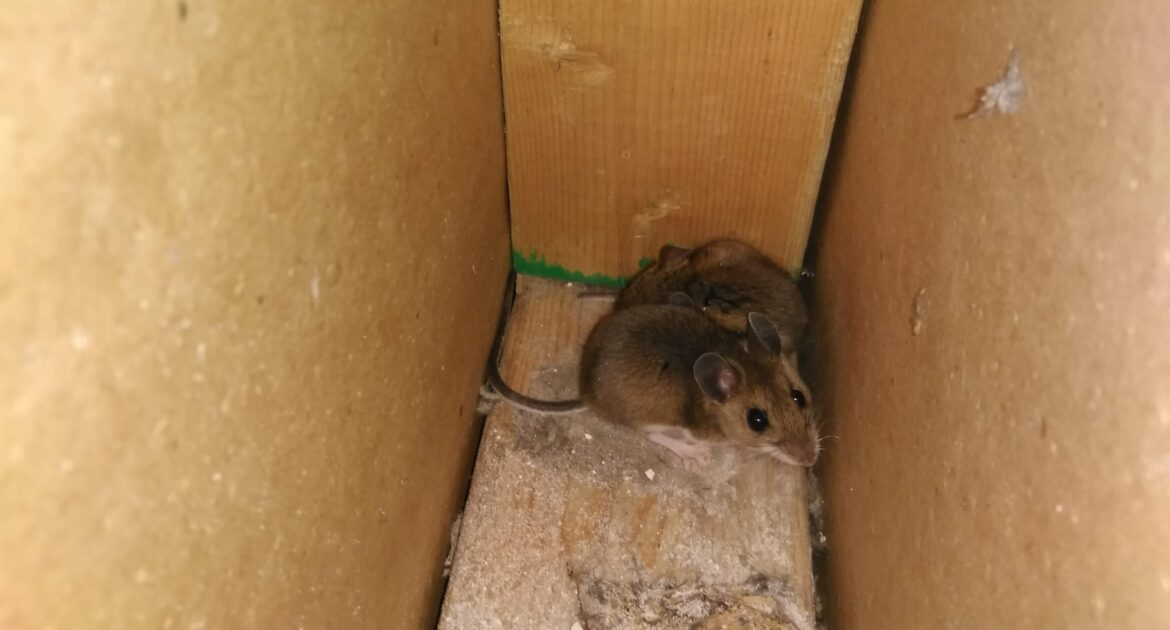It starts with a scurrying sound in the walls, the rapid tap-tap of tiny feet overhead—yet another uninvited visitor. The presence of mice in our homes is more than just a nuisance; it’s a situation that requires swift, effective action. But as many homeowners reach for the nearest DIY mouse trap, we must pause and ask: Are we addressing the problem in a way that respects both the creatures and the sanctity of our living spaces? It’s all too easy to resort to inhumane methods that promise quick fixes, but the truth is, they carry significant hidden dangers both for the mice and us.
Poorly considered traps not only risk causing unnecessary suffering to the animals but can also lead to unintended consequences like health hazards, damage to property, and even legal issues. When we embark on the journey of discovering how to get rid of a mouse in your house, it’s crucial to integrate humane practices that align with ethical wildlife control. Our approach should emphasize the importance of compassionate and effective solutions, such as those offered by Skedaddle Humane Wildlife Control in Kitchener.
In the following sections, we’ll explore the impact of inhumane mouse control strategies, introduce humane alternatives, and offer guidance on preventing infestations from occurring in the first place. Join us as we unveil the ethical path to a mouse-free home, where compassion meets effective problem-solving.
Health Risks of Inhumane Methods
When dealing with a mouse problem, it’s tempting to opt for quick, inhumane solutions like poisons or indiscriminate traps. Unfortunately, these methods often create a slew of unintended consequences. One of the most pressing issues is dead mice left to decay in hidden areas of our homes. These decaying bodies emit foul odours that permeate living spaces and become magnets for other pests, such as flies and maggots, ultimately compounding our problem with secondary infestations.
Moreover, the use of poison is fraught with risks that extend beyond the intended target. Poison can easily contaminate areas within our homes, threatening the safety of pets and children who might accidentally ingest or come into contact with it. This not only poses serious health risks but can also inadvertently affect local wildlife, disrupting the delicate balance in our environment. Rather than achieving a safe and mouse-free home, such tactics often introduce new dangers that make the situation far worse.
Ineffective Long-Term Solutions
Many of us are drawn to the simplicity of using methods like glue or snap traps when faced with a mouse problem in our homes. These methods might seem effective at first glance, as they can catch and kill individual mice. However, we soon realize that these quick fixes do not address the underlying issue: preventing new mice from finding their way inside.
If we don’t tackle the root of the problem—identifying how and where mice are entering—then more will inevitably follow in the footsteps of those removed. These reactive measures provide nothing more than a temporary reprieve from the nuisances of nocturnal scurrying, leaving us in a cycle of endlessly trying to control a recurring problem.
By failing to address the source of the infestation, we leave room for population growth to occur unabated. Without proper attention to entry points, our homes remain vulnerable to new visits.
Animal Suffering and Ethical Concerns
When deciding how to get rid of unwelcome visitors like mice, it’s essential to consider the humane repercussions of certain methods. Glue traps are a prime example of an inhumane solution that causes undue stress and suffering. Picture a mouse caught in a glue trap: it struggles helplessly, enduring long periods of anxiety, starvation, and immense pain before eventually succumbing. This prolonged suffering raises significant ethical concerns.
Similarly, the use of poisons and snap traps can lead to painful and inhumane deaths. It’s unsettling to think of the agony these creatures might experience, something that many homeowners find morally troubling. The idea of opting for swift and less cruel methods aligns with our values and ensures our homes remain ethically responsible environments.
As we reflect on these methods, it becomes clear that we must evaluate our choices not just for effectiveness but also for their humane impact. In the pursuit of maintaining a balanced coexistence, we strive for strategies that reflect our commitment to ethical living.
Risk to Other Wildlife
When we consider using poisons to rid our homes of mice, we often overlook the broader impact these substances can have on the surrounding ecosystem. Secondary poisoning is a significant concern, as predators such as hawks, owls, and other carnivorous animals can become unintended victims. When a predator consumes a mouse that has ingested poison, the toxic effects can be passed along, resulting in the sickness or death of these crucial animals. This ripple effect not only harms individual wildlife but also disrupts the natural balance, contributing to a declining population of beneficial creatures.
Moreover, the dangers extend into our own backyards, where inhumane traps indiscriminately capture and injure non-target animals. From birds and squirrels to our beloved pets, these traps pose a grave risk. Imagine our children finding a songbird or a neighbourhood cat trapped and suffering—it’s an outcome that no homeowner desires. The resulting distress and potential harm to innocent creatures can fracture the sense of safety and peace we seek in our environment.
More Humane and Effective Alternatives
When it comes to managing a mouse problem, we believe in humane and sustainable solutions that prioritize prevention over quick fixes. By focusing on long-term strategies, we can create an environment that is inhospitable to mice, reducing the need for inhumane methods.
- One-Way Doors and Humane Removal: One highly effective strategy is the use of one-way doors. These systems allow mice to exit a structure but prevent re-entry, effectively encouraging them to relocate. This approach aligns with our commitment to humane treatment and emphasizes prevention.
- Sealing Entry Points: The cornerstone of effective control is sealing potential entry points. By thoroughly inspecting and sealing gaps, holes, and cracks in the property’s exterior, we can significantly reduce the risk of infestations. This proactive step is essential in creating a barrier that keeps your environment rodent-free.
- Maintaining a Clean Environment: Regular maintenance and cleanliness can deter mice. Ensuring food is securely stored and waste is promptly disposed of minimizes attractants. This simple yet effective strategy helps foster an uninviting atmosphere for rodents.
- Ongoing Monitoring and Maintenance: Regular monitoring and maintenance are vital to ensuring long-term success. By keeping a vigilant watch on potential entry points and maintaining preventative measures, we can swiftly address any new developments.
Our commitment is to foster a harmonious living space for everyone involved. By choosing humane and effective alternatives, we protect our homes while respecting the lives of all creatures involved. These methods not only solve immediate issues but also contribute to a sustainable and ethical approach to prevention.
Choose Humane Solutions for a Mouse-Free Home
In summary, using inhumane methods to get rid of mice poses significant dangers, including health risks from decaying bodies and exposure to toxins, as well as the ineffectiveness of temporary solutions like snap and glue traps. Ethical concerns also arise from the unnecessary suffering these methods inflict. At Skedaddle Humane Wildlife Control in Kitchener, we offer humane mouse removal solutions that focus on the long-term strategy of one-way doors and sealing entry points. This approach not only respects the sanctity of your home but also aligns with ethical wildlife control practices.
We encourage readers who are wondering how to get rid of a mouse in your house or contemplating a DIY mouse trap to consider reaching out to Skedaddle for professional assistance. Our experienced team is ready to provide compassionate and effective solutions. Contact us to request a quote or learn more about our methods, and let us help you maintain a safe and humane living environment.




